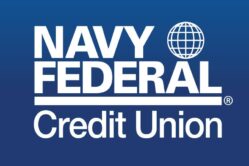Joining the military is one of the greatest adventures you will experience. But life changes significantly once you enlist.
One common experience many military members have is that they are earning more money than they have ever earned before — and there is no one telling them how to manage it.
To top it off, much of the income is considered disposable income, meaning you can spend it on anything. This is because your basic needs such as food and housing are covered by the military.
I have seen many young military members get trapped in debt because they managed their money poorly.
Money-Management Tips for New Recruits
If there is one key to financial success, it is this: Spend less than you earn. There is no way to achieve wealth or even reach a comfortable standard of living if you cannot follow that single rule.
There are several other keys to financial success, which I will outline below.
Spend less than you earn. Many new recruits get swept away by their first real paycheck, but they don’t understand how easy it is to spend it all and have nothing to show. A few small monthly payments add up quickly. A cellphone, car payment, car insurance, gas costs, internet service, cable access and other services can easily add up to hundreds of dollars per month — making your paycheck disappear more quickly than you thought it would.
The first thing you should do is set up a basic budget by tracking your spending for the first few months to help you get an idea of how much money you are bringing in after taxes and how much you are spending on regular expenses (like the bills mentioned above) and irregular expenses (such as haircut costs, uniform expenses and restaurant dinners). Then you will have a good idea of how much you can spend without spending too much every month.
You can set up a budget with a notebook and paper or use a software program such as you need a budget to help you create and track a budget.
Build an emergency fund. I recommend everyone start an emergency fund to be used for any unexpected expense that needs to be handled quickly. That way, you can cover a plane ride home, car repairs and other unexpected expenses.
You should keep it in a regular savings account so you have access to it quickly, but you shouldn’t use the funds for things like pizza and beer. It should only be used for emergencies.
How much should you put in your emergency fund? It depends on your needs, but I would recommend enough to cover a last minute airline ticket or similar expenses, or about $1,000.
Save money. In addition to an emergency fund, you will want to save money for other things. Maybe you want to buy a car, plan a vacation or buy a ring… it’s up to you. But it’s better to have some money saved so you don’t have to go into debt.
Avoid debt. Once you have your basic budget working, try to stick to it to avoid getting into debt. Debt can have a negative impact on your financial future. Excessive debt can get you discharged from the military. If you can’t afford something, then wait until you can. Remember, the key to financial success is spending less than you earn.
Be careful with credit cards. Credit cards are good when used as a tool, but they can get you into a lot of trouble very quickly if you are not careful. Learn how credit cards and debit cards work and learn about the pros and cons of using credit cards. Be sure to only charge as much as you can pay off each month.
Build a good credit score. Responsible use of credit and credit cards can help you establish a good credit score and save you thousands of dollars later in life, because you will be able to obtain loans at more favorable interest rates. When I was in the military, a friend bought a car at almost 20% interest because he didn’t have good credit. That cost him several thousand dollars more during the life of the loan than it should have cost. That is several thousand you can use for more important things.
Start saving for the future. The military pension plan is one of the most generous retirement systems you will ever find. But you may not stay in the military long enough to earn military retirement (20 years). In the meantime, start saving and investing for your future by opening a Roth IRA or participating in the Thrift Savings Plan (the government version of a 401(k) plan). Even a couple hundred dollars in savings per year can grow into thousands of dollars by the time you reach retirement age.
Bonus Tip: How to Handle a Military Bonus
Many new recruits or reenlisting veterans will receive a bonus. There are a lot of things you can do with your bonus, but before you spend it, remember this: you can only spend it once. It is common to think of all the things you can do with the money and then trick yourself into believing you can do all of them.
Before spending your money, think about any debts you might have, your needs, and your wants. I would recommend putting a large portion of your bonus toward any debts you have. If you don’t have any debt, then I would recommend using a large portion of your bonus to start an emergency fund. Then, I would consider saving for things you may need, such as a large-ticket item like a car.
The last thing you want to do is not have anything to show because you spent all your money on video games and bar hopping. You can read more ideas about your bonus in this article.
For more tips on building a solid financial future, I recommend reading and beginning Dave Ramsey’s Baby Steps. It provides a plan to set you up for financial freedom including getting out of debt, starting an emergency fund, creating an investment portfolio and taking more steps to a healthier budget.



About the comments on this site:
These responses are not provided or commissioned by the bank advertiser. Responses have not been reviewed, approved or otherwise endorsed by the bank advertiser. It is not the bank advertiser’s responsibility to ensure all posts and/or questions are answered.